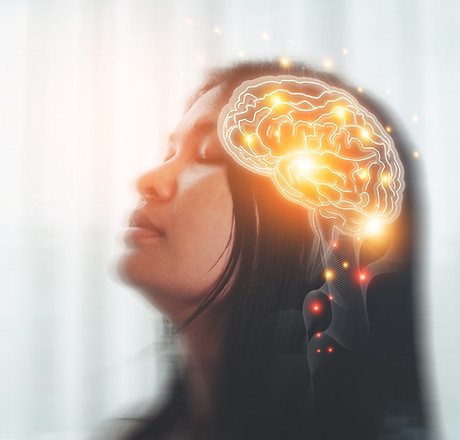HOW WE CAN HELP
LNC Treatment Approaches
MEDITATION & RELAXATION TRAINING
Meditation is a practice where an individual uses a technique – such as mindfulness, or focusing the mind on a particular object, thought, or activity – to train attention and awareness, and achieve a mentally clear and emotionally calm and stable state. It can be a highly effective means of reducing stress, relieving anxiety and creating a safe mental space for the person in practice.

INTEGRATIVE MENTAL HEALTH NUTRITIONAL GUIDANCE
The mind-body connection we hear so much about these days opens up a whole new vista for mental health care: the brain not only regulates the various systems that make up the body, but the body plays an integral role in affecting how we think and feel. Integrative Mental Health treatment is a complementary and alternative therapy (CAM) that uses the relationship between the body and mind to enhance the effects of the work you do with your therapist or coach. Learn how small changes to your diet can have a big impact on your mental health!

DYNAMIC MINDFULNESS
Chronic stress places us in a persistent state of fight, flight, or freeze. Our ability to make decisions, pay attention, regulate emotions, adaptively cope, and experience empathy is disrupted. And, over time, our bodies and our mental health begin to feel the toll. With Dynamic Mindfulness, we are able to use movement to shift our response from fight, flight, or freeze to rest and restore. The result? Increased focus, stronger stress resilience, and an improved sense of wellbeing.

SAFE AND SOUND PROTOCOL (SSP)
SSP is specially filtered music designed to work with the specific systems of the body that help us to feel safe. Safety creates a healing environment, allowing us to trust and more closely connect with other aspects of our self and with others. Developed by Dr. Stephen Porges and based on his Polyvagal Theory, SSP uses sound to exercise the tiny muscles of the middle ear, thereby facilitating the healthy nervous system responses that organically open the door to calmed emotions, clear thinking, and improved communication skills.

EYE MOVEMENT DESENSITIZATION AND REPROCESSING (EMDR)
EMDR is an integrative psychotherapy approach that has been extensively researched and proven effective for the treatment of trauma. EMDR is a set of standardized protocols that incorporates elements from many different treatment approaches. To date, EMDR therapy has helped millions of people of all ages relieve many types of psychological stress.

NEUROFEEDBACK
Neurofeedback is biofeedback for the brain - it allows you to directly train your brain to function more efficiently. Neurofeedback works by looking at the brain from moment to moment in action and rewarding the brain for changing its activity to a more appropriate pattern.

EXPRESSIVE THERAPY
Expressive therapy may incorporate art, music, dance/movement, drama, poetry/creative writing, play, and sand-tray within the context of counseling. The process of creation is emphasized rather than the final product, so you do not have to be an artist to benefit from this approach!

NeuroAffective Relational Model (NARM)
NARM provides a pathway for addressing relational and developmental trauma. We will explore attachment patterns that often cause life-long psychobiological symptoms and interpersonal difficulties. These early, unconscious patterns of disconnection deeply affect our identity, emotions, physiology, behavior and relationships.
NARM integrates nervous system and relational approaches, mindfulness and self-regulation, to help heal the lasting impact of complex trauma.

DEEP BRAIN REORIENTING (DBR)
DBR is a trauma processing psychotherapy that tracks the original physiological sequence that occurred when the deep brain was first alerted to the original threat. We can use DBR to process through the shock and the emotions of a traumatic or threatening event. When enough shock is cleared, processing the emotions becomes much more manageable and less overwhelming.

POSITIVE PSYCHOLOGY
Positive psychology has been described in many ways, but the commonly accepted definition of the field is this:
“Positive psychology is the scientific study of what makes life most worth living” (Peterson, 2008).
This approach can provide a framework for how to move forward in your life after healing from past trauma. It focuses on cultivating your own natural strengths, with a goal of helping you to flourish and live your best life!

COGNITIVE BEHAVIORAL THERAPY (CBT)
CBT is a common type of talk therapy. It focuses on challenging and changing cognitive distortions and behaviors, improving emotional regulation, and the development of personal coping strategies that target solving current problems.

MINDFULNESS BASED COGNITIVE THERAPY (MBCT)
MBCT is designed to help people who experience repeated bouts of depression and chronic unhappiness. It combines the ideas of cognitive therapy with meditative practices and attitudes based on the cultivation of mindfulness. The heart of this work lies in becoming acquainted with the modes of mind that often characterize mood disorders while simultaneously learning to develop a new relationship to them.

CERTIFIED TRAUMA RECOVERY COACHING
A Certified Trauma Recovery Coach will be by your side, providing the tools to boost confidence, build esteem, and help strengthen daily practices of self-care and well-being. Your coach will work with you as a peer, mentor, guide, and educator.
To learn more about coaching opportunities, visit

CONTACT US
Call or email to learn more about our services,
or to schedule a free phone consultation.
